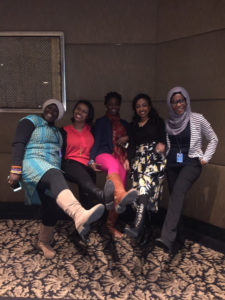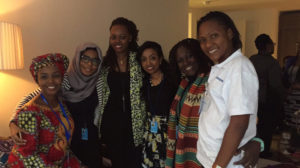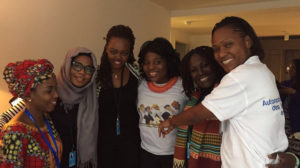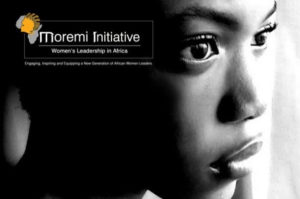The 61st United Nations Commission on the Status of Women took place from the 13th to the 24th of March 2017 at the United Nations Headquarters in New York, USA. The forum brought together representatives from Member States, Non-Governmental Organisations, Global Leaders and Activists, to discuss issues affecting women around the world. The theme for this 61st convening was “Women’s Economic Empowerment in the Changing World of Work.”
This year’s commission took place at a critical moment, as the world of work is fast changing, spurred by innovation, globalization and increasing human mobility. At the same time, it is adversely impacted by a growing humanitarian crises, the rising informality of labour, and economic inequality of which women are the most affected. Thus, it goes without saying that, the CSW is instrumental in promoting women’s rights, documenting the reality of women’s lives throughout the world, and shaping global standards on gender equality and the empowerment of women. As has become the norm, about 15 MiLEAD Fellows attended the convening. These Fellows are part of a growing network of young women leaders recognized as some of the most outstanding on the continent and in the Diaspora, in recognition of their efforts to facilitate meaningful change for African women and girls.
Given Moremi’s continued belief in maintaining strong ties with its partners, it collaborated with The African Women’s Development Fund-USA, and Women Change Africa to organize an event on the margins of the UNCSW 61 sessions. This event, dubbed “Womentoring Hangout” brought together MiLead Fellows as well as a range of diverse, seasoned and influential African women leaders who are working to push forward the agenda for women’s rights in Africa and the Diaspora. The event focused on the personal development and life of an activist/change-maker, and represented a safe space for sharing, inspiring and promoting the spirit of sisterhood and solidarity across different generations of African women. Our time together reaffirmed that there’s
Fellows as well as a range of diverse, seasoned and influential African women leaders who are working to push forward the agenda for women’s rights in Africa and the Diaspora. The event focused on the personal development and life of an activist/change-maker, and represented a safe space for sharing, inspiring and promoting the spirit of sisterhood and solidarity across different generations of African women. Our time together reaffirmed that there’s
 more work to be done for women’s rights and that all hands are needed. As Abena Busia of AWDF-USA put it, “…it is not by chance that we are on this planet and we need to justify our presence.” This is possible through service to our communities and nations, and by extension, the world as a whole.
more work to be done for women’s rights and that all hands are needed. As Abena Busia of AWDF-USA put it, “…it is not by chance that we are on this planet and we need to justify our presence.” This is possible through service to our communities and nations, and by extension, the world as a whole.
One may ask, why such an event was held, given the theme of this year’s commission. I will be quick to respond by adding that, the empowerment of women comes in various forms and therefore requires intergenerational support and partnership to keep the momentum going. Together, we held the intention of nurturing ourselves as “whole women”, as Maame Afon of Moremi Initiative aptly described it. By this, we focused on the importance of practicing self-care and embracing vulnerability as a positive leadership trait. Maame Afon explained that “as whole women we are free to bring all of who we are to everything we do, while showing up in the fullness of who we are created to be.” Needless to say, how much bonding happened as we took turns to share our stories—the good, bad and not so glorious ones. In the end one thing was clear—as women we give so much of ourselves that sometimes we forget to take care of us. On this point, Bisi Fayemi, Co-founder of AWDF steered up discussion on the need to understand the difference between being selfish, self-less and self-full and emphasized the need to be self-full before being self-less.
This event by Moremi Initiative, AWDF-USA and Women Change Africa depicted the growing need for African and black women to gather in the spirit of solidarity and make space for new energy and old wisdom to merge in service to African women’s leadership.
By: Haddy Jonga (MILEAD Fellow, 2015)
Maame Afon (Moremi Initiative—Dir. Programs & Partnerships)



